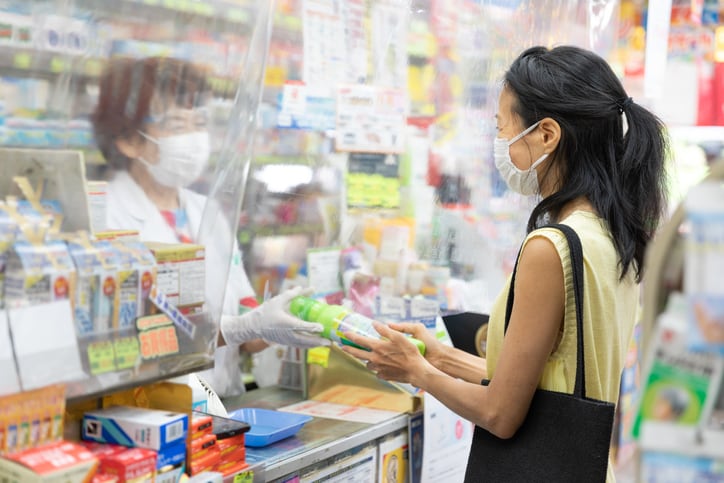Among the 10,000 respondents, only 2.6% knew what HSPs were, while just 9.2% said they have heard of them.
Despite the low awareness of HSPs, 44% of respondents desired to use HSPs in the future, after the services were explained to them.
Researchers from the National Institutes of Biomedical Innovation, Health and Nutrition in Tokyo, Japan who conducted this survey said it was important to increase the awareness of HSPs, amid growing usage of health foods.
It is widely known that the concomitant use of medicines and some health foods may affect the therapeutic effect and also cause health issues.
For instance, herbs such as St. John’s wort, ginkgo biloba extract, and aojiru (vegetable juice made from green leafy vegetables), have been reported to have potential interactions with drugs.
Japan institutionalised HSPs in 2016 and as of June 2021, there were 2,608 in operation, representing 4% of the 60,000 pharmacies in the country.
“This is the first report that clarifies the awareness of and need for health support pharmacies. HSP is a unique system in Japan, however as health food use increases around the world, the concept of HSP is also important in other countries,” researchers published in Nutrients.
Online survey
A nationwide online survey was administered to 10,000 men and women between the ages of 20 and 89 years in 2020.
Respondents were asked on their awareness and use of HSPs, the need for services they provide, and their use of health foods.
Survey findings
The respondents were asked whether there was an HSP in their area of residence and 92% answered there were none or that they did not know if there was any. The rest said there was an HSP within walking, cycling, driving distance.
About 44% of respondents said they have not used HSPs but would like to use them in the future. The positive sentiment skewed more towards older respondents.
The most frequent responses for future use of HSPs were for medicine prescription (51%), advice around of prescription drugs (52%), and explaining of OTC-drugs (48%). The desire for consultations regarding dietary/nutritional guidance and health foods was recorded between 30 to 40%.
In terms of health foods usage, about 22% of respondents currently used vitamin/mineral products, and 20% used other products that included herbs and pre/probiotics.
Future of HSP
“To improve healthy life expectancy, it is important to increase both awareness of HSPs and the number of them to help consumers easily find and access HSPs because more than 90% of participants answered that there was no HSP within their residence area or that they did not know if there was,” researchers said.
Source: Nutrients
https://doi.org/10.3390/nu14010165
“Determination of the Awareness about and Need for Health Support Pharmacies as the Provider of Consultation Service about Nutrition Education and Diet-Related Health Promotion by Health Professionals in Japan”
Authors: Tsuyoshi Chiba, Nanae Tanemura and Chiharu Nishijima


